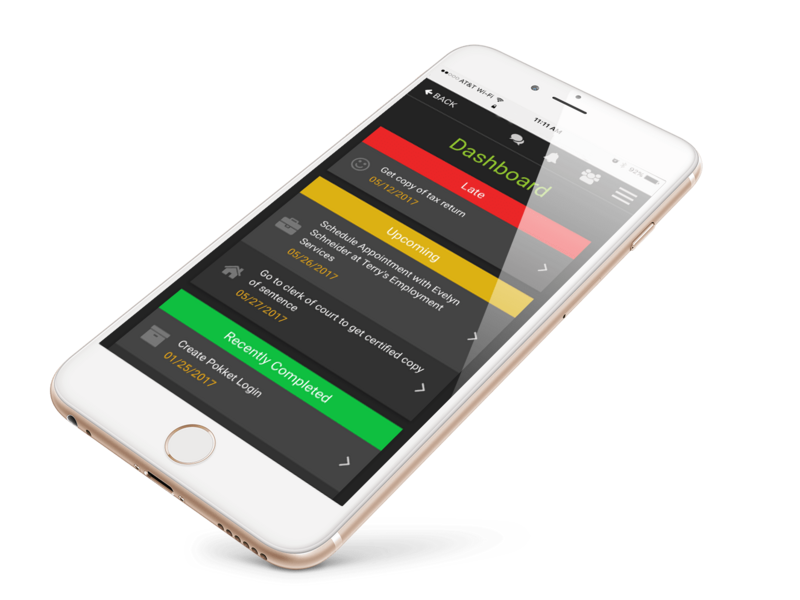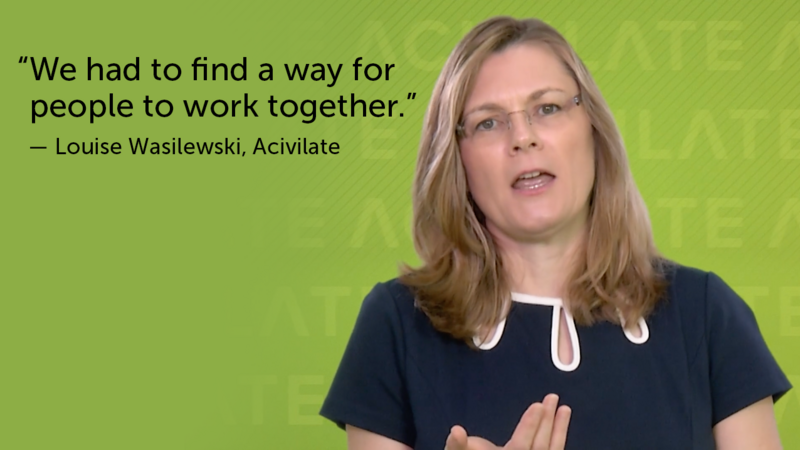October 29, 2018
Staying out of jail can start with a smartphone

Some businesses struggle to retain customers. The U.S. criminal justice system has the opposite problem: It has too many returning customers.
Exactly how many return to jail is unknown, but a Bureau of Justice Statistics report showed that two out of three people released from prison end up back there within three years. Half the time it’s because they overlooked or violated the terms of their probation or parole.
An early stage company in Georgia aims to lower those numbers dramatically. If successful, it could save local, state and federal governments huge amounts of money spent on jails, prisons, probation and court costs.
The company is Acivilate, and the technology is a smartphone app called PokketSM. If you’re skeptical that an app can actually change the behavior of someone convicted of a crime – well, first you have to understand the realities that confront someone newly released from prison or jail:
- A person on parole or probation has conditions to meet – rules to follow, appointments to keep, deadlines to meet.
- But that same person may be challenged by a lack of education, addiction, mental illness, homelessness or even conflicting demands on his or her time. Such as: Meet my probation officer or show up for my shift at work?
- Solving such problems typically requires help – from agencies and nonprofits – but getting access to this help can be a huge challenge. Even then, privacy rules cause communication to break down, and the combination of rules, obstacles and limitations becomes overwhelming.
“The Pokket app addresses this scenario by connecting the individual with the corrections officer and third-party agencies and service providers, and keeping them all in contact with each other,” explains Louise Wasilewski, the co-founder and CEO of Acivilate. “For the person who’s been released, it simplifies knowing what to do, and how and when to do it. And it puts them in greater control of their rehabilitation, making it less likely they’ll fall through the cracks.”
Specifically, Pokket allows the user to set and manage goals; find services such as housing, health care and transportation; and create daily tasks that can be checked off. Because it’s easy to learn and use, the post-incarceration world is made simpler to navigate.
Utah’s Department of Corrections has deployed Pokket to help prisoners plan for their release and stick with their parole. In a video produced last year by Fox News, one inmate praises the technology. “I’m feeling pretty confident about my parole,” says Harley Bickford. “This is going to be my last time in prison.”
Closer to home, Acivilate learned this month that the Gwinnett County, Ga. Sheriff’s Office will expand its use of Pokket after receiving a $50,000 grant from the John D. and Catherine T. MacArthur Foundation. The grant was awarded as part of a program to reduce overcrowding in the nation’s jails and prisons.
For CEO Wasilewski, developing the Pokket app and launching Acivilate in 2014 was a mission that was partly personal. While a teenager living in Leicestershire, England, her father was convicted and received a suspended sentence and one-year probation.
“When my father was on probation, he couldn’t get hired again for the type of work he was qualified for,” she remembers. “He finally took a job as a day laborer in construction. So my family experienced the social stigma and economic consequences of his conviction.” That experience, she adds, motivated her to help others get a second chance in life.
In the early days of developing Pokket, Wasilewski was reconnected with Tanja Link, an associate professor of criminal justice at Kennesaw State University. The two had served on the board of a community organization that helped educate women in prison and met again while working on a task force.
“I remember Louise describing the technology to me and planning for the rollout,” Link recalls. “I stressed the importance of collecting data on it so we could show evidence of its effect.”
Wasilewski brought in Link to do just that – and GRA’s venture development program funded the early evaluation efforts to help refine the technology. Last year, GRA Venture Fund, LLC committed to an investment of $450,000, which is helping Acivilate generate more venture capital investment.
As Acivilate continues to roll out Pokket, it faces extraordinary market potential:
- No other platform is known to exist that knits together the individual, corrections officer and various trusted third-party partners around a rehabilitation plan that can be shaped and sustained.
- In the U.S., 4.5 million people are on probation or parole, and millions more are bonded out of jails.
- The goal of lowering the cost of incarceration and court trials by cutting the number of people returning to jail or prison — known as reducing recidivism — has broad and deep bi-partisan support.

Acivilate’s core customers are corrections, probation and parole departments, and for them, Pokket serves as a tool to increase workforce effectiveness and efficiency. By providing real-time communication, an officer can intervene before a challenge becomes a crisis and keep each probationer on track. And because the app is mobile, officers can recapture lost time – say, by checking on their cases while waiting for a court hearing. That frees up time for more productive conversations with their clients.
Beyond that market, of course, is the benefit to the person who has a second chance in life. In her research on women re-entering society after time in jail, Tanja Link observes that keeping the individual connected to people and a plan is crucial.
“In re-entry, people are handed from one organization to another,” Link says. “Pokket serves as a bridge. It gives them the possibility to take charge of their own lives.”
